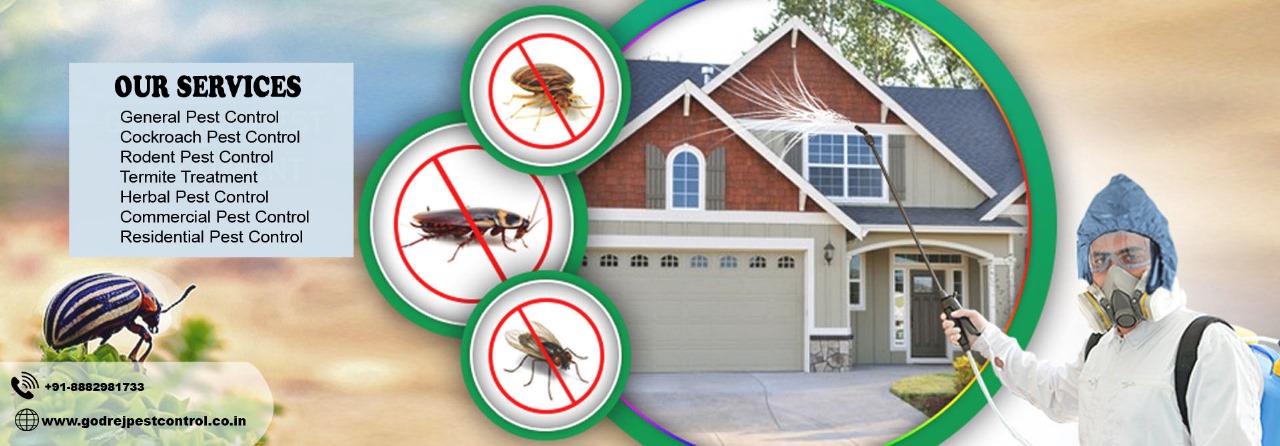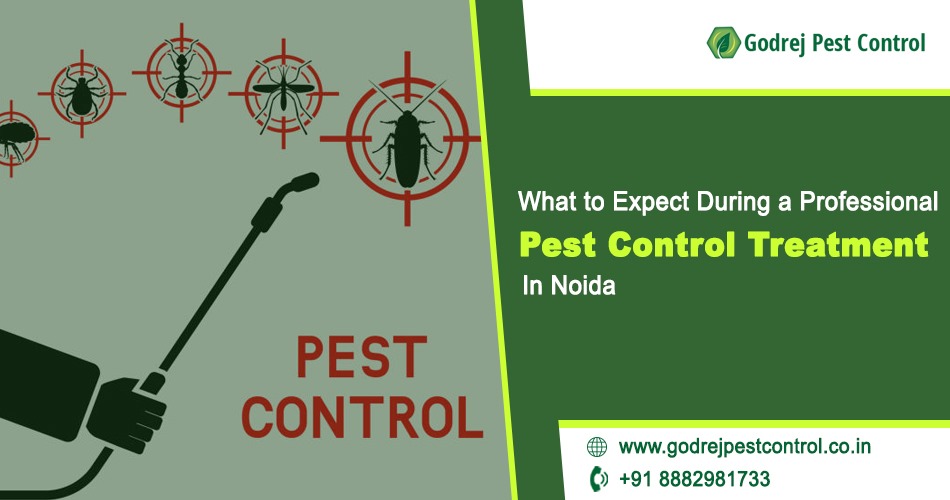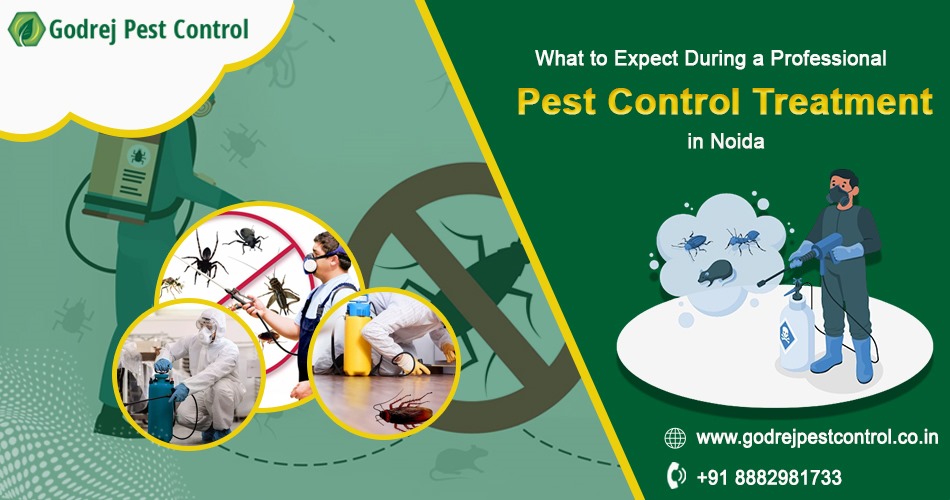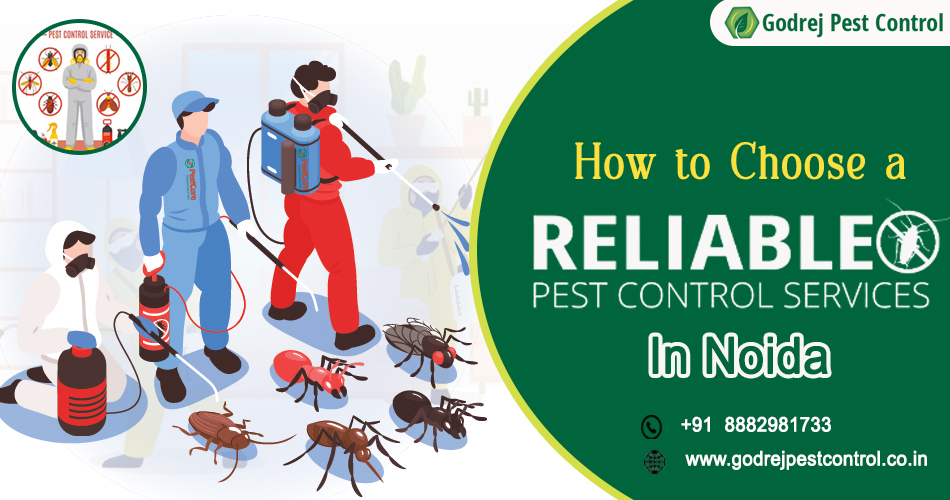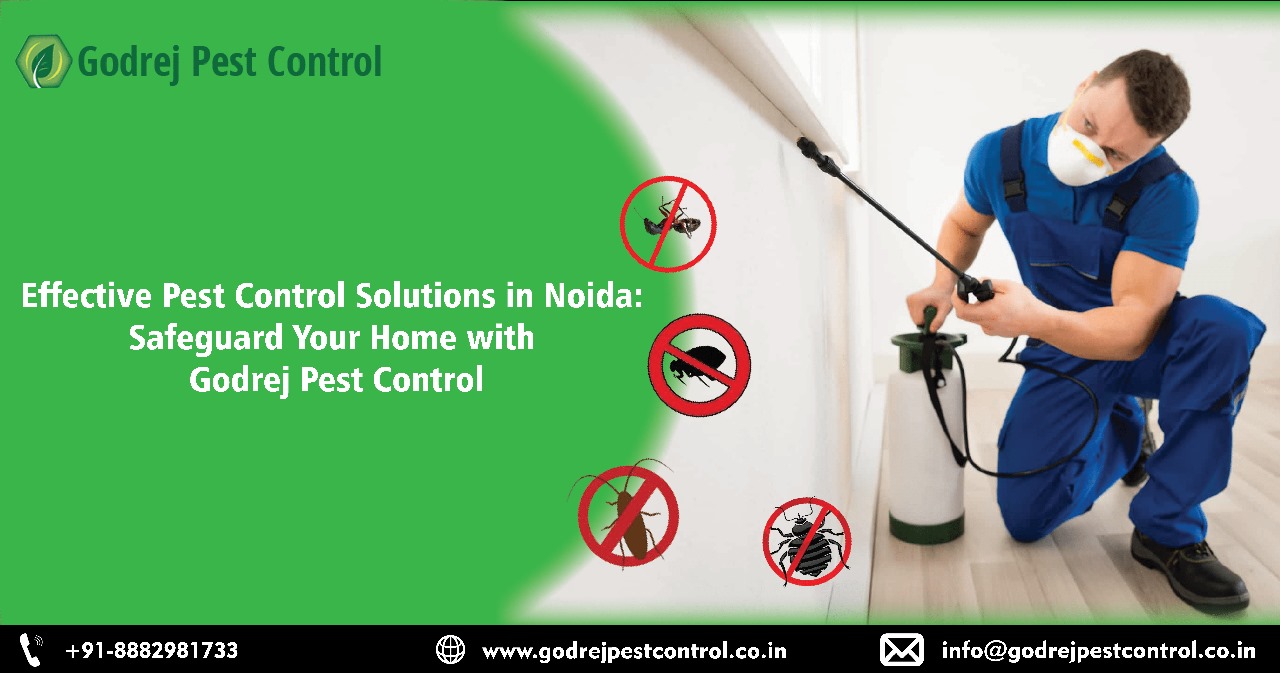Pest problems can turn a peaceful home or a functional business into a nightmare. Whether you’re dealing with ants, termites, cockroaches, or rodents, it’s essential to address pest issues swiftly and effectively. For residents and business owners in Noida, pest control services offer a lifeline to keep these nuisances at bay. Godrej Pest Control provides comprehensive pest management services in Noida. Specializing in eco-friendly and effective solutions, Pest Control Noida ensures a safe, pest-free environment for homes and businesses.
Continue reading “What to Expect During a Professional Pest Control Treatment in Noida”What to Expect During a Professional Pest Control Treatment in Noida
Pest problems can turn a peaceful home or a functional business into a nightmare. Whether you’re dealing with ants, termites, cockroaches, or rodents, it’s essential to address pest issues swiftly and effectively. For residents and business owners in Noida, pest control services offer a lifeline to keep these nuisances at bay. Godrej Pest Control provides comprehensive pest management services in Noida. Specializing in eco-friendly and effective solutions, Pest Control Noida ensures a safe, pest-free environment for homes and businesses.
Continue reading “What to Expect During a Professional Pest Control Treatment in Noida”How to Choose a Reliable Pest Control Service in Noida
Pest control is essential for maintaining a safe and healthy environment in your home or office, especially in urban areas like Noida, where pests can quickly become a nuisance. With a variety of pest control service providers in the market, choosing the right one for your needs can seem overwhelming. It’s important to select a service provider that’s not only effective in controlling pests but also safe, reliable, and value for money. We’ll guide you through the key factors to consider when choosing a reliable services pest control Noida.
Continue reading “How to Choose a Reliable Pest Control Service in Noida”Effective Pest Control Solutions in Noida: Safeguard Your Home with Godrej Pest Control
Pests are a common issue faced by residents and businesses in Noida, leading to health hazards, property damage, and discomfort. With the rapid urbanization and increasing population density in Noida, the need for reliable pest control services has never been greater. Whether it’s termites, cockroaches, rodents, ants, or mosquitoes, these pests can invade homes and offices, posing significant risks to health and property. That’s where professional pest control services come into play.
Continue reading “Effective Pest Control Solutions in Noida: Safeguard Your Home with Godrej Pest Control”Godrej Pest Control: Effective Pest Control for Offices and Homes in Noida
In the bustling city of Noida, pest control is a growing concern for both residential and commercial properties. Whether it’s ants, cockroaches, termites, or rodents, pests are an unwelcome intruder that can cause significant damage, affect hygiene, and even compromise health. With a robust solution like Godrej Pest Control, the residents and business owners of Noida can now breathe easy, knowing they have access to reliable and effective pest control services.
Continue reading “Godrej Pest Control: Effective Pest Control for Offices and Homes in Noida”